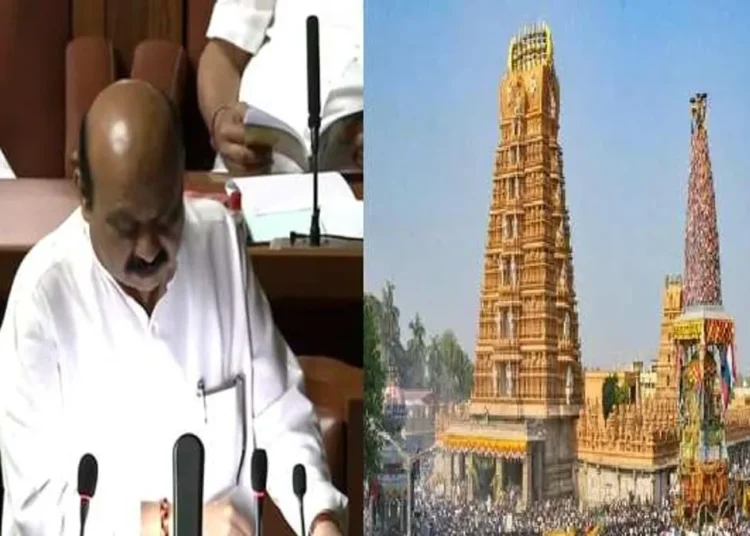A contentious bill passed by the Karnataka Assembly has sparked controversy, with the Bharatiya Janata Party (BJP) accusing the state government of targeting Hindu temples to fill its coffers. Under the ‘Karnataka Hindu Religious Institutions and Charitable Endowments Bill 2024,’ temples earning over ₹1 crore will now be required to pay 10 percent to the government, while those earning between ₹10 lakh and ₹1 crore will pay 5 percent.
Karnataka BJP president Vijayendra Yediyurappa lambasted the Chief Minister Siddaramaiah-led government, alleging that the bill was a means to replenish the government’s depleted finances. He criticized the move as an attempt to siphon donations and offerings from Hindu temples to fill the government’s coffers.
Union Minister Rajeev Chandrasekhar echoed similar sentiments, labeling the bill as a “new low” for the ruling Congress party in Karnataka. He criticized the government’s move, stating that it was targeting Hindu temples unfairly.
In response to the criticism, Chief Minister Siddaramaiah clarified that the amendments to the bill were misrepresented for political gain. He shared a graphic debunking what he termed as “BJP’s fake news” and highlighted the contributions temples have made to a fund for religious activities since the enactment of the Act in 1997.
The recent amendment, according to Siddaramaiah, was solely aimed at enhancing the common pool fund for religious purposes connected with the Hindu religion. He emphasized that the funds have not been utilized for any other purposes or for the benefit of followers of other religions.
Congress leader Ramalinga Reddy defended the party, accusing the BJP of engaging in religious politics for political gains. He asserted that the Congress has consistently safeguarded temples and Hindu interests over the years.
The passing of the bill has reignited debates over the government’s handling of temple revenues and its implications for religious institutions in Karnataka. As both sides continue to trade barbs, the controversy underscores the intersection of religion and politics in the state’s governance.













